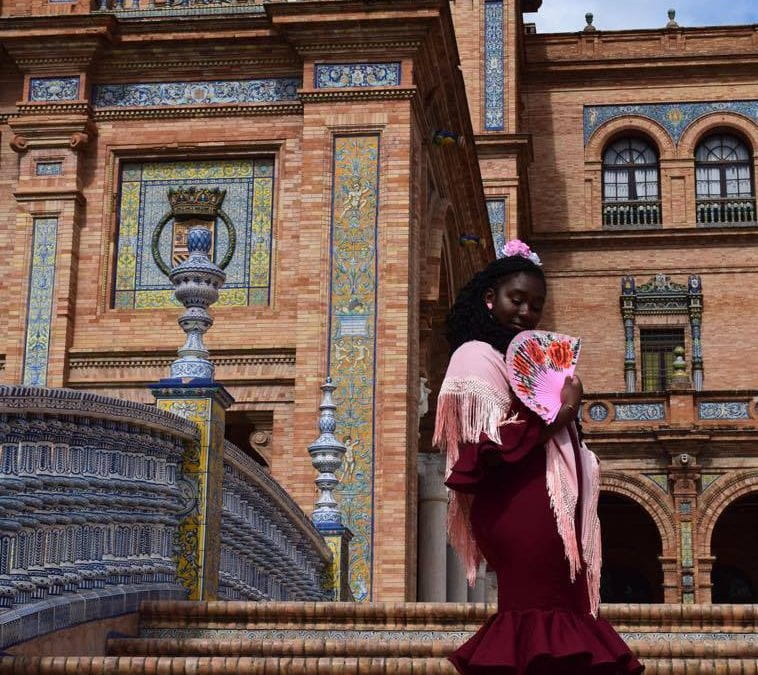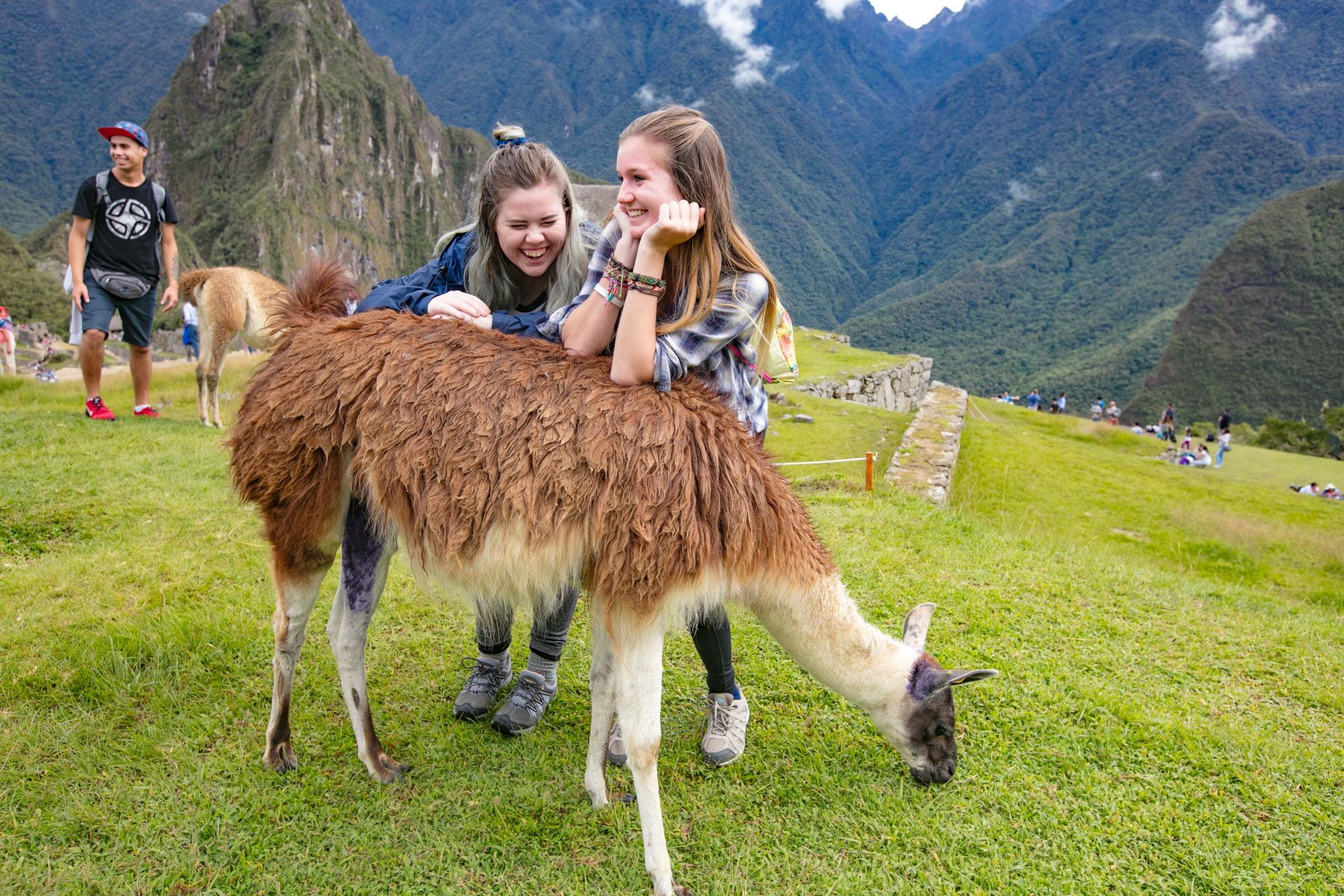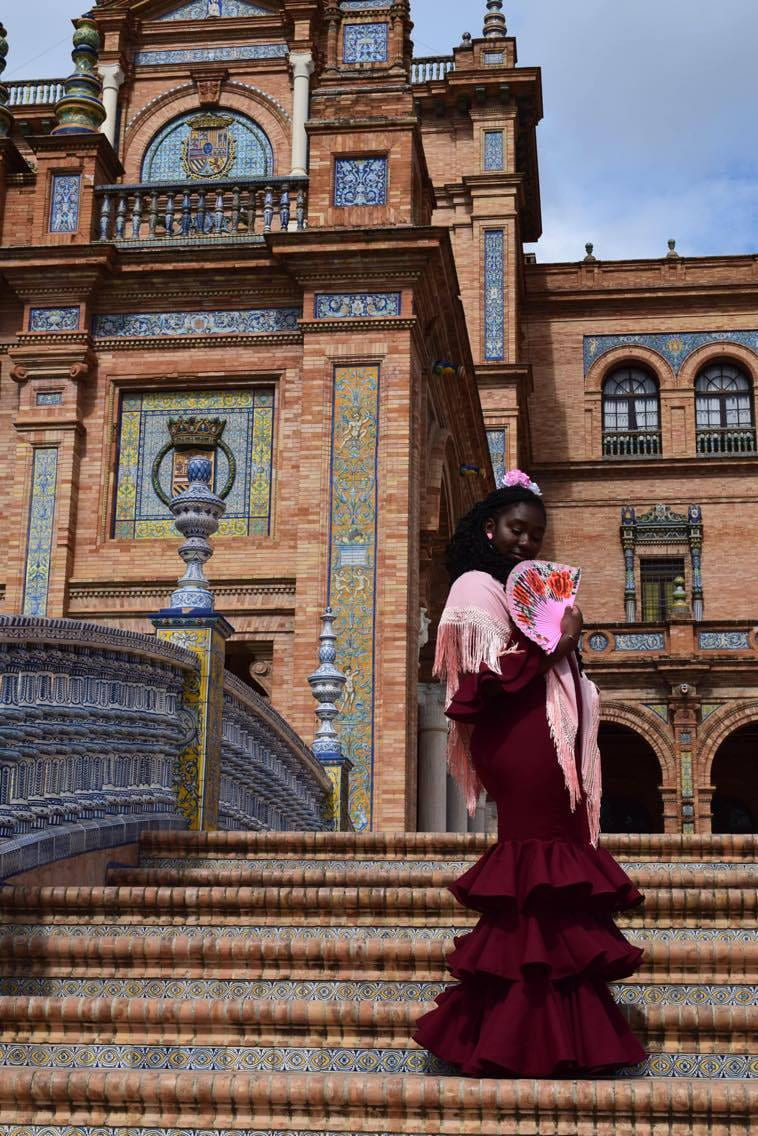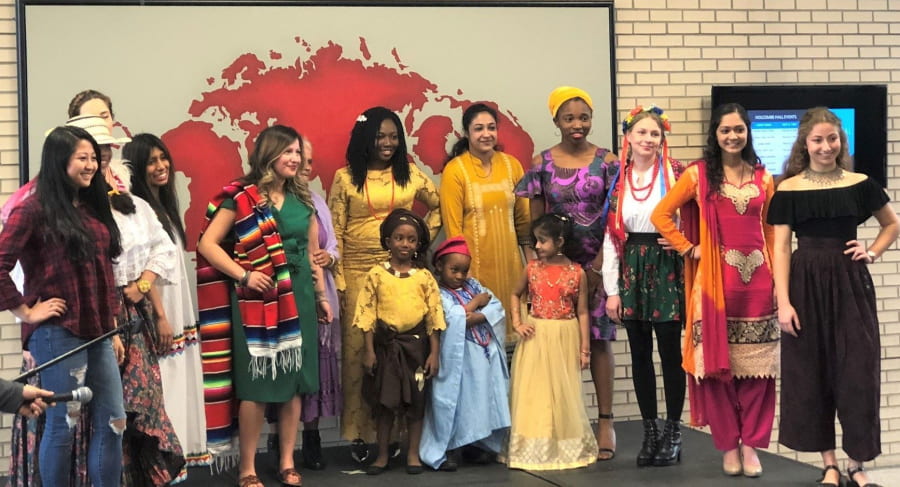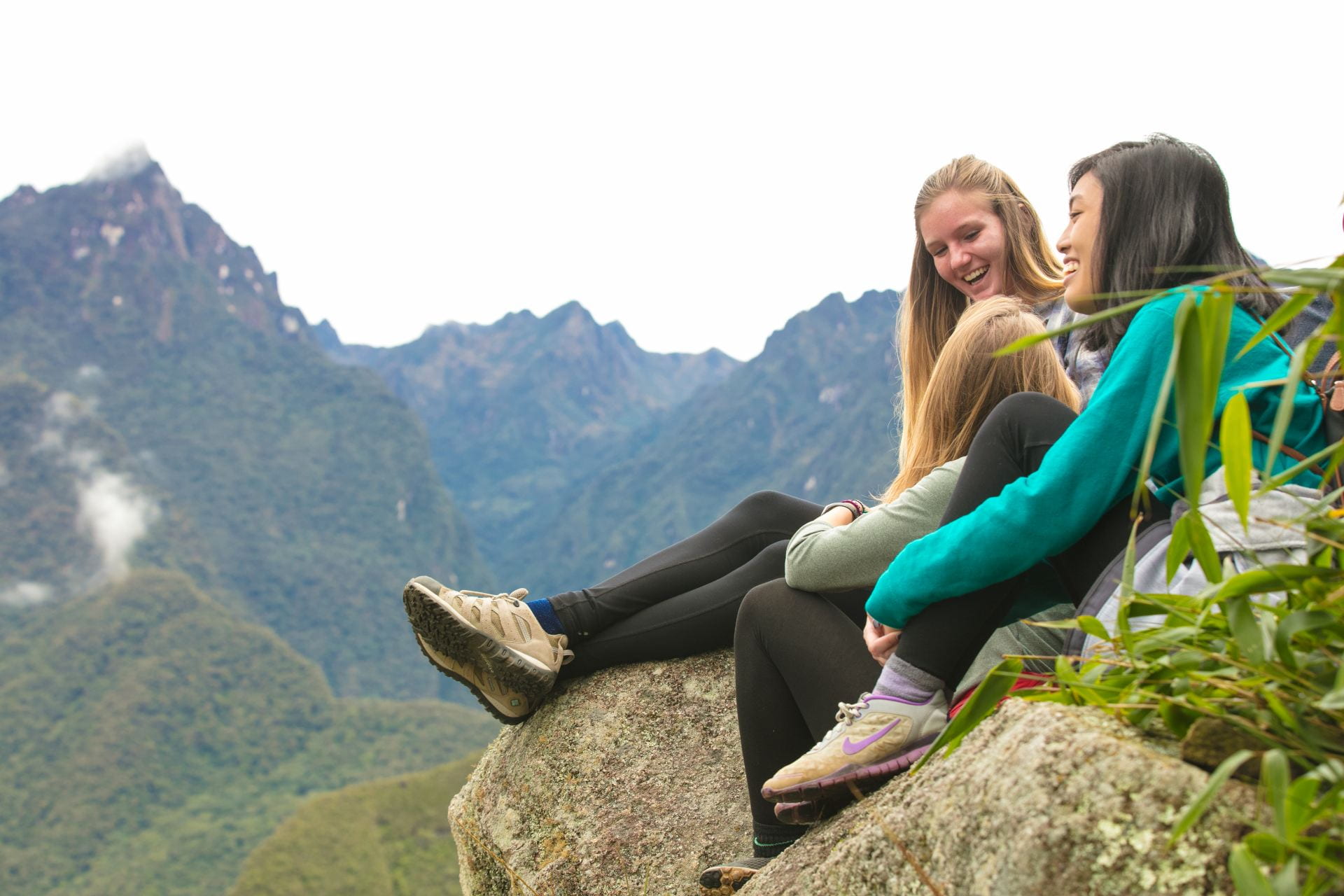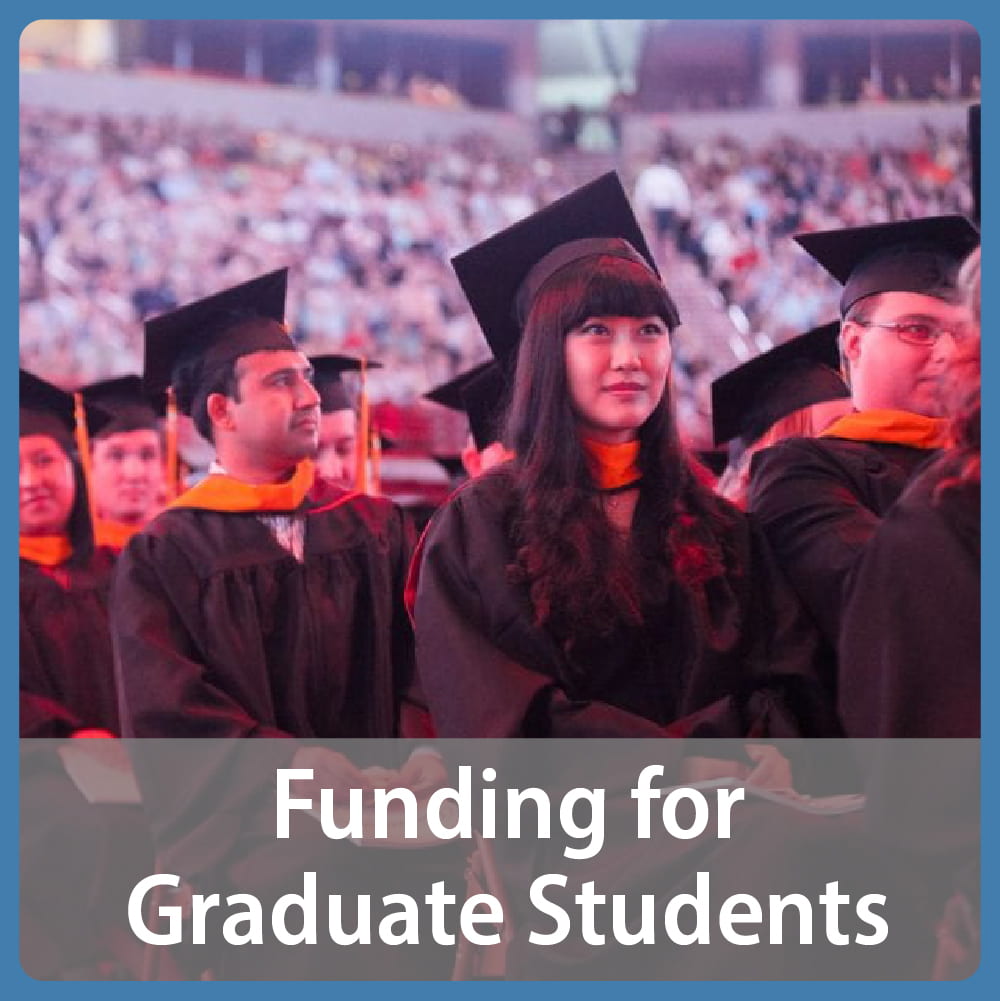By Emilija Sarma
Have you ever wondered what it would be like to completely immerse yourself in another culture for a few months or a year (or several years!) while you pursue your degree? Maybe your curiosity has already been piqued by photo after photo of amazing sights posted on Instagram by that friend who’s flown half-way across the globe to study abroad. Maybe you’re intrigued by the idea of experiencing a different way of doing things. And maybe you’re almost convinced that study abroad is right for you, too… We’re here to tell you that it is definitely right for you!
We asked several students—both domestic and international—why they decided to take this huge step and bravely venture out on their own to study in another country. Read about their experiences below and get inspired to start your own journey!
So, Why Do I Need to Go Anywhere? I Already Have Everything I Need Right Here!
You might think that you have all you need at your fingertips—your family and friends, your favorite foods and places, and your comfort zone. Being in your comfort zone might feel great because it wraps you up like a warm blanket. However, there are several drawbacks to always staying within the comfort zone: you sometimes might struggle to understand and connect with people who come from a different place; you might find it increasingly difficult to try new things; sometimes it may stunt your growth as a person and keep you from achieving goals that demand thinking outside the box.
For our International Student Ambassador, Ania, the decision to study abroad in the U.S. came exactly from wanting to leave her comfort zone and to experience a different culture. At first, Ania expected that it would be difficult to adapt to the U.S., but “surprisingly, it was not hard at all. People were very welcoming and made me feel like I had a home away from home.”
Vinci, a native Arkansan, decided to do her study abroad in China because it had been something she had wanted to do ever since she graduated high school. “I’ve always wanted to study Chinese and learn more about Chinese culture [and] I wanted to travel somewhere really different,” says Vinci.
Stepping outside the realm of what’s familiar and comfortable to you can be a major catalyst for positive change that will have a ripple effect through your entire life moving forward. Besides allowing you to make friends from all over the world and helping you learn a new language, studying abroad allows you to develop a sense of self and a confidence in your abilities like never before.
Graduate Ambassador Christina decided to go to Seville, Spain for her study abroad because she found herself “in a particularly rough phase in [her] life,” and she knew that it was a time for her to make a change. Christina says, “Study abroad is a journey. Not just in distance but in bravery, knowledge, communication and personal growth. You have no choice but to change.”
This Will Change Everything!
You will experience incredible adventures during your time studying abroad, but it is not all smooth sailing—there will be situations that will challenge you and make you re-examine how you approach certain things. But that is the beauty of it! Challenges are a necessary and important part of life and without them we would never be able to grow and advance. This is something students learn very quickly when they’re far away from home.
For Christina, one of the biggest challenges was the language barrier: “There are major challenges of course, especially if you go to a place where you don’t speak the language. For this, the best advice I could ever give someone to learning a new language is practice fearlessly. During my time abroad, I limited my own improvement because I was so afraid of saying the wrong thing. I would always get stuck on vocab or conjugation and halt the whole conversation just trying to figure out the past imperfect of a specific verb was.
This was totally counterproductive and eventually the person I was speaking to would give up and try to guess what I was saying or worse, speak to me in English. If you want to grow in your language, persist fearlessly and just skip over a word to power through the conversation. Even if the syntax is horrible, locals understand what you are saying 99% of the time and if they don’t, well you can try your hand at explaining yourself a different way.”
Vinci also struggled with a new language but in a different way: “Being a Chinese-American, learning Chinese in China has a number of challenges. For one, people would initially assume I know Chinese and speak really fast Chinese to me even though I’m not fluent. I also felt pressure from myself to learn faster and be the most fluent.”
A lot of the time, it’s the being away part that scares students the most. Leaving the people closest to you for an extended period of time is definitely not easy by any means. Ania struggled with this as well: “I think the hardest challenge has been being away from my family and friends for a long time.”
But there is an upside to embarking on this journey on your own—you soon realize just how strong you are standing on your own two feet thousands of miles away from home. As Ania says, “I have met many amazing people and I have grown as a person. I feel that this experience has made me become more independent and more open to learn from others cultures.”
Khadidja, a Fulbright Scholar and PhD student in Comparative Literature and Cultural Studies from Algeria, reflects on her experience as an enriching one thanks to the support network she has built for herself in the U.S., “My experience studying abroad has been full of positivity and growth. At the University of Arkansas, I was blessed to form a supportive community of American and international academics. This community that values education and believes in its power of change has been my rock throughout my MA and current PhD journey.”
Are We Different or Are We the Same?
Although you may end up on the other side of the globe surrounded by a mosaic of languages, traditions, and conventions that are foreign to you, you will soon discover a fundamental truth—people are people no matter where you go. We are the same in all of the ways that truly count.
Christina says, “Learning to communicate despite a language barrier shows how people’s lives around the world are parallel. We are all just people, and maybe we speak different languages, or eat dinner at a different time, or have different religious views, but we’re mostly alike. I had to cross an ocean all alone but I still found a home amongst people who live just like me. That’s the best thing about going abroad. When you return home you do take a lot of a country’s history and culture but it’s the daily routine that makes you always feel connected.
As a result the time that you spend in your city means so much to you that you leave a little piece of your heart there, knowing that one day you will return. I came home with a whole new perspective of myself too. The person who returned to America is a person who talks to strangers confidently because she did so in another language. She’s friendly because she knows how helpful it is to have a smiling face when you’re all alone. She learned so much about herself while living abroad and she has Spanish language and culture as something else to add to the list of things she is passionate about.”
Vinci was surprised by “the similarities and differences between southern US culture and Chinese culture,” that she recognized, and found that she “gained a newfound prospective about our big our world is and how wonderful people can be.”
Let the World Meet You
Studying abroad is an enriching, exciting opportunity to better yourself as a person and also as a future professional; however, it is also a privilege that many students strive very hard for. We see international students on the U of A campus every day, but we rarely stop to think about how much effort it took for them to be here and how much they impact our campus community.
As Khadidja puts it, “As a Muslim North African woman, education abroad felt out of reach because of the economic and social challenges that face Algerians or North Africans. Without a Fulbright grant, it would have been impossible for me to afford education in the US; therefore, I want to recognize and stress the importance of having such grants available for international students. For that reason, I want to encourage International Students to seek out scholarships and financial support opportunities before joining any academic institution in the U.S.”
Being an international student puts you in a special position where you get to learn about the ways people live their everyday lives in another culture; however, you are also bringing a piece of home with you to people who may have never met someone like you before.
“The cultural exchange message that Fulbright holds is a catalyst to our study abroad experiences because we came here, to America, not just to study but to also build cultural bridges between different communities. Yes, we are here to learn, but we also educate Americans about our countries and cultures. Learning, here, happens both ways,” Khadidja explains. This means that you have the opportunity to change peoples’ perceptions and challenge stereotypes that others may have about your culture. Just by being someplace else, you get to impact someone’s perspective and make a difference.
Where to Start
Whether you’ve made up your mind or want to explore a little further, start looking at your options now! For domestic U.S. students at the University of Arkansas, the first place to start is the Study Abroad Office located on 520 N Storer Ave. They are happy to accept drop-ins or you can schedule an appointment via email at studyabr@uark.edu to discuss the various programs you can take part in.
Vinci says, “You’ll find that there is so much that you don’t know and you’ll be challenged to think differently and look at people through a different lens. It’s a life-changing experience. Do a program that will allow you to fully immerse in the culture and don’t be afraid if you don’t know the language. Be open-minded and excited to learn new things.”
For international students outside the U.S., the best place to start is the U of A Graduate School and International Admissions homepage which guides you through the process of applying online, and provides useful information on funding your studies, admission requirements, and everything in between! For more information, you can always email the International Admissions Office at iao@uark.edu.
Ania says, “If someone has the opportunity to study abroad, I would totally recommend it. Don’t be afraid of doing something new and different. The best experiences are those that make you leave your comfort zone.”

